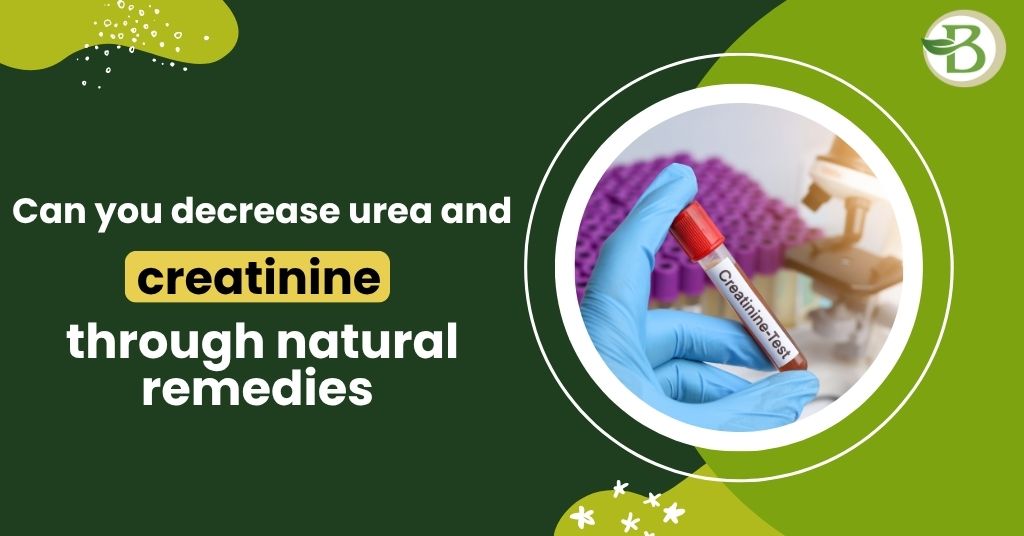How Do Increased Creatinine And Urea Levels Affect Your Kidneys?
Creatinine is a waste product in the blood that results from the breakdown of muscle tissue and dietary protein. When the kidneys are not functioning properly, they cannot effectively remove creatinine from the blood, leading to elevated levels. Not seeking a proper high creatinine treatment in a timely manner can lead to the following consequences;
- Kidney disease or injury
- Poor blood flow to the kidneys
- A blockage in the urinary system
- Conditions affecting the kidneys, such as hypertension
Elevated levels of urea in the blood can suggest kidney dysfunction or damage. Urea is a waste product produced when the liver metabolizes proteins, and healthy kidneys filter it from the bloodstream. When urea levels are excessively high, the kidneys do not effectively filter this waste. It can lead to issues like;
- Acute kidney injury
- Failure of other organ systems
- Development of chronic kidney disease (CKD)
But wait, are you aware of the normal ranges of both? The table below can help you detect how far your creatinine or urea levels are from the normal range.
What Is The Normal Range of Urea And Creatinine?
The normal range of urea and creatinine can vary according to the age and gender of the individuals as follows;
| Age | Creatinine levels | Urea levels |
| Children | 0.5–0.9 mg/dL | 7–20 mg/dL |
| Adult women | 0.6–1.1 mg/dL | 6–21 mg/dL |
| Adult men | 0.7–1.3 mg/dL | 8–24 mg/dL |
So, suppose your urea and creatinine levels are not in the standard range. In that case, the natural remedies mentioned below can surely be beneficial in significantly gaining control over them, in addition to a proper medical plan.
What Are The Effective Natural Remedies To Reduce Urea And Creatinine?
Individuals need to make significant changes in their diet as well as lifestyle for quite a long time to reduce urea and creatinine levels naturally and improve kidney function. The following tips may help manage and potentially lower urea and creatinine levels:
Maintaining proper hydration
Consuming enough fluids is essential as it helps our kidneys filter out too much sodium, urea, and other toxins from the body. Water also assists in keeping the blood vessels open and wide, allowing blood to flow through them and carry all the necessary nutrients to your kidneys. If you become dehydrated, blood and nutrients may not reach your kidneys, which can occur with severe dehydration, potentially increasing the risk of developing chronic kidney disease symptoms.
Everyone is unique, and how much fluid we need to drink varies based on several things. These include how much and what kind of exercise we do, the weather, and health factors like pregnancy or breastfeeding. Usually, about 16 cups(3.7 litres) for men and 11 cups(2.7 litres) for women of water are sufficient. This may suggest that you require only four to six cups of pure water, depending on additional fluid sources such as coffee, tea, juice, fruits, and vegetables.
Limit consuming foods that can cause kidney damage
Certain food habits can damage your kidneys and interfere with their efficient functioning, consequently increasing the levels of creatinine and urea. Limiting these food items can be beneficial in naturally reducing urea and creatinine levels.
Foods to avoid for kidney health
- Low protein diet: Consuming too much protein can put additional stress on your kidneys. Consider incorporating lean proteins into your diet, such as skinless chicken, turkey, and whole eggs. Doctors recommend a serving size of 2-3 ounces of meat or fish. It is even better to choose plant-based proteins like beans and lentils instead of animal proteins.
- Low sodium intake: Sodium, a mineral found in salt, helps regulate fluid levels in your body. Excessive sodium intake can cause your body to retain fluids, leading to high blood pressure and swelling, which can put stress on your kidneys and heart. To reduce sodium consumption, avoid processed foods, canned goods, and salty snacks.
- Limit Phosphorus and Potassium: As kidney function declines, you may need to limit your intake of phosphorus and potassium. Your healthcare provider can perform blood tests to monitor your levels and assist you in adjusting your meal plan accordingly.
- Limit alcohol and smoking: Excessive drinking and smoking can create measurable difficulties in the process of removing urea and creatinine from the body. These habits are the leading causes of high blood pressure and also increase the chances of developing chronic kidney disease(CKD). It is good to steer clear of these habits.
Consuming a kidney-friendly diet
To lower creatinine and urea levels, you can try eating a kidney-friendly diet that includes:
Foods good for the kidneys
- Fruits: Eat fruits that are high in fibre and anti-oxidants, like apples, blueberries, bananas, and especially avocados.
- Vegetables: Include a mix of vegetables, such as bitter gourd, eggplant, carrots, cauliflower, red bell pepper, cucumber, and onions.
- Spices: Add cinnamon, turmeric, garlic, and ginger to your meals. Cinnamon is good for your kidneys, while turmeric has anti-inflammatory benefits. Garlic and ginger can help lower blood pressure, which is good for kidney health.
- Plant-based proteins: Replace some or all of your meat with plant-based options like beans, lentils, and tofu. Foods high in fibre, like oats and beans, can help your kidneys work better by aiding digestion and waste removal.
- Omega-3 fatty acids: Include omega-3 sources like fish oil in your diet. These healthy fats can help reduce inflammation in the kidneys.
Talking with the healthcare experts
While these natural remedies can definitely benefit patients up to a certain level, if you are experiencing issues related to elevated levels of urea and creatinine in your blood for a long time, you must not delay in seeking proper medical treatment.
Not taking these conditions seriously can lead to a variety of issues, as mentioned earlier. Adopting these natural remedies along with a proper medical treatment can speed up your recovery process and increase the efficacy of your treatment. However, these remedies are not a substitute for medical help. Getting in touch with a doctor can provide you with more guidance on the topic.
Why Choose Us?
At Bharat Homeopathy, patients can get the support of highly skilled and qualified homeopathic kidney specialists to receive the most effective treatment for their issues. The kidney specialists thoroughly examine the patients and their symptoms to prescribe the best homeopathic medicine for creatinine and urea. This comprehensive strategy has benefited numerous patients in the past.
Not only this, the hospital believes that diet can play a significant role in hastening the healing process, which is why the treatment plans also include a complementary diet plan. With supportive staff members and services like online consultation and doorstep delivery of medicines, Bharat Homeopathy is one of India’s leading clinics, known for its effective homeopathic medicine for uric acid and creatinine. Contact us today to learn more about the treatment plans. With supportive staff members and services like online consultation and doorstep delivery of medicines, Bharat Homeopathy is one of India’s leading clinics, known for its effective homeopathic medicine for uric acid and creatinine. Bharat Homeopathy is one of India’s leading kidney hospitals and is popularly known for its effective homeopathic treatment to reduce urea and creatinine levels.


